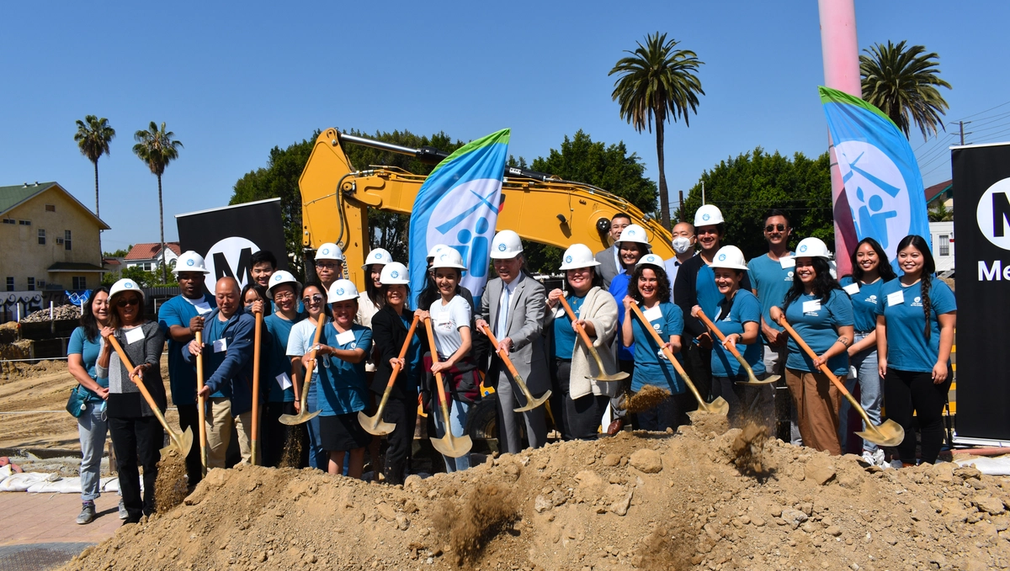Little Tokyo’s compassionate response to homelessness
Our unhoused neighbors in Little Tokyo need help now. LTSC has been serving this community for over 40 years and is well positioned to lead a community effort to develop a humane and compassionate response to the crisis. Relying on its experience building affordable housing, providing social services and engaging with the community, LTSC will establish a community-driven approach to homelessness in Little Tokyo with one-on-one case management, permanent supportive housing and working with the community to find common ground.

What is the primary issue area that your application will impact?
Housing and Homelessness
In which areas of Los Angeles will you be directly working?
Central LA
In what stage of innovation is this project, program, or initiative?
Expand existing project, program, or initiative
What is your understanding of the issue that you are seeking to address?
Little Tokyo has a homelessness problem and while the most obvious impact is on the people experiencing homelessness (PEH), small business owners and residents in the historic neighborhood are at a tipping point. As community members grapple with the homelessness challenge, the debate over how to approach homelessness in the neighborhood has intensified. Little Tokyo is a diverse community with a wide range of reactions to the current situation. Many stakeholders are frustrated by the growing crisis and have grown impatient for quick solutions. This frustration can lead to hopelessness and feeling that the crisis can’t be solved. People who are reacting out of frustration tend to reach for quick solutions such as sweeping PEH off the street or pushing them out of the neighborhood as opposed to long term solutions rooted in compassion and community building. The major challenge is building a positive, humane consensus that addresses the needs of PEH and the concerns of the community.
Describe the project, program, or initiative this grant will support to address the issue.
LTSC will bring the breadth of its experience in direct services, affordable housing development, and community building and engagement to bear in establishing a community-driven approach to homelessness in Little Tokyo with: Intensive Direct Services for the Unhoused Community LTSC recently established a Homeless Services Program, which consists of a case manager and an outreach specialist. These staff are building relationships and trust with the people experiencing homelessness (PEH) in the community and connecting them to services and housing resources. Building New Permanent Supportive Housing LTSC has two projects in predevelopment located in Little Tokyo that will create 150 permanent supporting housing units over the next 2-3 years. LTSC will build the capacity of its new Homeless Services Program to be the on-site intensive case management service (ICMS) provider at these two projects when they open. Building Common Ground With Little Tokyo Stakeholders: Because homelessness impacts the entire neighborhood, LTSC will partner with Little Tokyo stakeholders to develop a broad-based community response to the crisis of PEH. LTSC will isolate the anti-homeless, anti-affordable housing voices and build consensus of the majority of stakeholders around a compassionate approach to short and long term solutions. This will take a combination of outreach to PEH and organizing community organizations, the small business community, religious institutions and local residents.
Describe how Los Angeles County will be different if your work is successful.
LA County will be different because: For the first time the Little Tokyo community will have a community-based organization with staffing and resources to address homelessness. Local businesses, churches, other organizations and local residents will have a social service agency to direct their inquiries or referrals. LTSC will be able to contribute to the overall effort to address the homeless crisis in Los Angeles County and advocate for additional resources and policy changes. Over 400 affordable housing units will be built in Little Tokyo and of those 150 will be permanent supportive housing for formerly homeless. There will be a compassionate community-based response to the homelessness crisis in Little Tokyo that is rooted in organizing, neighborhood building, community planning, stakeholder education, direct outreach, and relationship building. The long-term results of this work will be a reduction in the number of people experiencing homelessness in Los Angeles County.
What evidence do you have that this project, program, or initiative is or will be successful, and how will you define and measure success?
For over 40 years LTSC’s work around homelessness has been tangential, focusing on building affordable housing in LA and leading community engagement around community issues. To date, LTSC has built 1,000 apartments and engaged hundreds of seniors, youth and individuals. LTSC has over 40 years experience providing social services serving thousands in need but not necessarily PEH. Now for the first time LTSC will combine its experience and specifically focus on serving PEH in Little Tokyo and organizing the community to find compassionate solutions. Success will be measured by the number of PEH served and the level of community involvement. The project will be evaluated on the outcomes achieved by the PEH served by the program including the number achieving housing. HMIS (Homeless Management Information System) will allow the program to collect client level data and run reports. Stakeholder surveys and listening sessions will measure the impact the program is having in the community.
Approximately how many people will be impacted by this project, program, or initiative?
Direct Impact: 200
Indirect Impact: 5,000